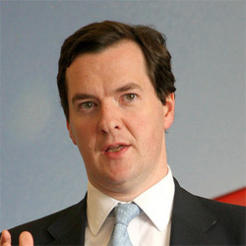Charity sector leaders welcomed VAT rebates and a generous upper limit for social investment tax relief in the Autumn Statement today, but expressed concerns about a planned review of business rates.
The Chancellor of the Exchequer announced a rebate scheme for a group of charities which carry out functions government would otherwise have to provide, including hospices, air ambulances and search and rescue charities.
He also announced that SITR, a new relief which will allow investors to lend money to charity and claim a 30 per cent tax rebate, will allow charities to receive up to £15m in investment every three years.
However there was disappointment from Navca that the Chancellor did not confirm the amount of money available through the Local Sustainability Fund – a Cabinet Office fund to help charities struggling following the recession, expected to be worth £40m.
And there was concern that a “full review of the structure of business rates”, also announced by Osborne today, could introduce changes which could be harmful to charities.
Charities receive a mandatory relief on 80 per cent of their business rates bill. This is currently the largest tax relief enjoyed by the charity sector, and is worth £1.6bn a year.
A discretionary relief on business rates worth 20 per cent of the total is also available from local authorities, however figures collected by Civil Society News suggest most charities do not receive this relief, and that charities may still pay around £300m a year.
“We will need to look closely at the details of the business rate relief review and the undertones regarding clamping down on tax avoidance to ensure that charities don’t suffer unintended consequences,” said Caron Bradshaw, chief executive of the Charity Finance Group.
Andrew O’Brien, a senior policy officer at NCVO said it was too early to tell what would emerge from the review, but that it needed to be monitored closely.
“We’ll be keeping a close eye on this to ensure that charities are not negatively affected by any proposed changes,” he said.
Sir Stephen Bubb, chief executive of Acevo, said about the announcement of a review into business rates: “Charities give so much to the high street each and every day. The government needs to support the work they do to make our public spaces that much more giving and caring. Charity leaders must play a central part of this review. Acevo will be robust in making this case as this debate unfolds.”
John Hemming, chair of the Charity Tax Group, said he had been reassured by a meeting with Treasury officials.
"Discussions today have indicated that this review is not aimed at the vast majority of charities, and existing charity reliefs are not being questioned, which is reassuring for the sector," he said.
Bubb said that in the Autumn Statement, Osborne had made a "fatal error" in neglecting the role of charities and voluntary organisations.
He said: "The Chancellor has made some promising noises but he is guilty of one fatal error. He neglects the vital role of the third sector to building a healthy society and economy. His announcements on national infrastructure said nothing about the local, community or third sector.
"In his drive for a budget surplus, we are concerned that he will jeopardise already-decimated local services further. This will harm not only our nation’s sense of togetherness but our economic productivity as well."
Other measures in the Autumn Statement
Other measures announced in the statement included a £15m one-off fund for the repair of churches and a new tax relief for orchestras, both of which are likely to benefit charitable organisations. NCVO figures show there are 400 charitable orchestras in England and Wales.
The government has also closed a review of the “loans to participators” scheme, which affects loans from subsidiaries to parent companies.
At present a relatively common mechanism among charities is to establish a subsidiary with share capital which then loans money back to the parent until it needs to use it.
Changes in the law around this scheme risks charities being taxed on these arrangements.
Osborne also announced that aid workers who died while dealing with humanitarian emergencies would be exempt from death duty.









